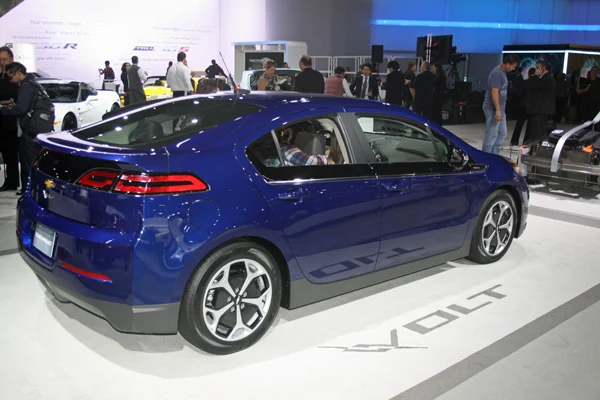One thing sure to help the continued expansion of automotive innovation that focuses on greener outcomes is continued public/private partnerships.
The federal government has been a key player in this capacity for years, and now is making available nearly $50 million to “accelerate research and development of new vehicle technologies that give drivers and businesses more transportation options and protect the environment in communities nationwide.”
A large portion of this funding will include support for the U.S. Energy Department’s EV Everywhere Grand Challenge, which was a broad initiative launched in March 2012 that aimed to make plug-in electric vehicles (PEVs) more affordable and easy to drive within the next decade. The support being offered in this go around will focus upon “a wide range of technologies that further cut fuel costs for drivers and help make vehicles more efficient and durable, including lightweighting materials; cost-effective batteries and power electronics; advanced heating, ventilation and air conditioning systems; and improved fuels and lubricants.”

Chevy Volt (image copyright EarthTechling)
Thus far, with help in part from federal programs like this, U.S. automakers, universities and national laboratories reportedly have achieved significant advances in vehicle efficiency and electrification, including cutting the cost to manufacture advanced electric vehicle batteries by 50 percent over the last four years. Much of what’s been achieved in the growth of PEVs is talked about in a recently released report from the DOE [PDF], the highlights of which include:
- Last year, Americans bought nearly 100,000 plug-in electric vehicles, nearly twice as many as sold during 2012. According to industry estimates, the U.S. PEV market is on track to pass the 200,000 sales milestone by spring 2014 – nearly two years before hybrid electric vehicles reached this milestone since their introduction 10 years ago.
- The Kelley Blue Book 5-Year Cost to Own Awards ranked the 2013 Chevrolet Volt as #6 on its list of vehicles that have the lowest total cost of ownership for five years after the purchase of a new car. Only compact and subcompact cars cost less over this same period.
- Through the Workplace Charging Challenge, the Energy Department is working to expand access to workplace charging stations for Americans workers across the country. In the first year of the challenge, more than 50 employers – including Facebook, Coca-Cola and Dell – have pledged to provide PEV charging access to their workforce at more than 150 worksites.
- Over the last four years, the cost to manufacture advanced electric vehicle batteries has fallen by 50 percent. At the same time, the size and weight of PEV batteries has also been reduced by over 60 percent, while improving overall vehicle performance and durability.
“Today, the American auto industry is on the rise, experiencing the best period of growth in more than a decade,” said U.S. Energy Secretary Ernest Moniz in a statement. “The new research and development funding announced…will help support our domestic automakers’ continued growth and make sure that the next generation of advanced technology vehicles are built right here in America.”






